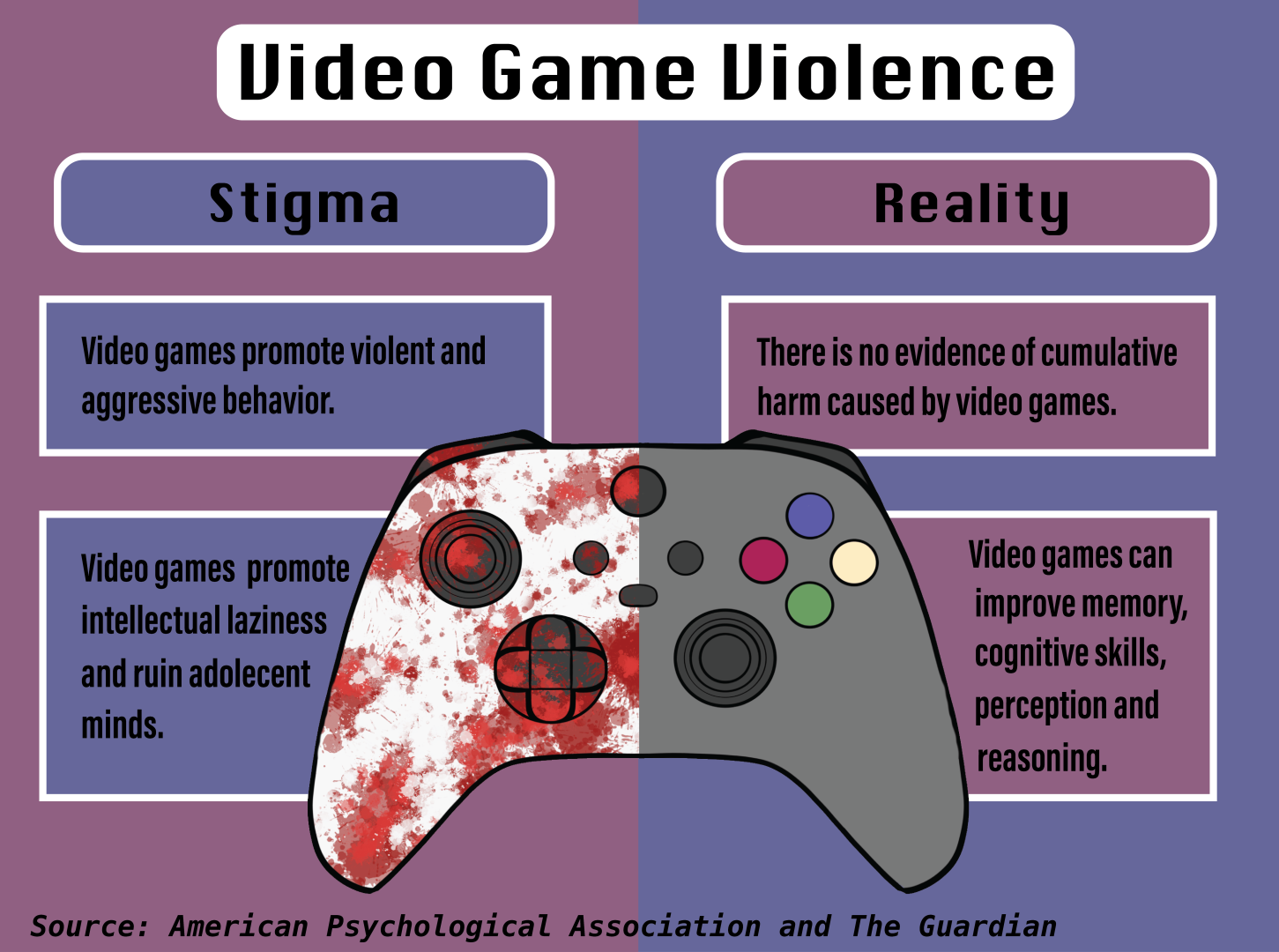Former President Donald Trump “called for a crackdown on violent video games and reforms to mental health laws, arguing that ‘mental illness and hatred pulls the trigger, not the gun,’” according to Time Magazine. All throughout my life, the stigma that video games lead to violence has loomed over my favorite pastime.
Ever since I was a kid, I had a controller or a mouse in my hands. Games are the source of my favorite memories with those I love. My dad introduced me to my favorite game of all time, “The Elder Scrolls V: Skyrim” when it came out in November 2011. I have been playing “The Sims” franchise since I could read, starting off by watching my mom over her should as she played it. I played “World of Warcraft” with my dad, aunt and grandpa all throughout the COVID-19 pandemic. “Animal Crossing: New Horizons” got me and my high school friends through March 2020 lockdown and virtual learning. Video games shaped my life, and I still play when I feel overwhelmed and need an escape, a virtual reality to find comfort in and be anyone I want to be for a few hours.
According to the Dana Foundation, video games were tied to the gunman who killed 22 people and injured 24 in an El Paso, Texas Walmart because he made a “fleeting reference” to soldiers he saw in video games. As a result of this, “…many politicians were quick to blame video games for this and other mass shootings. Yet it seems clear that the El Paso gunman was primarily motivated by ethnic hatred,” the Dana Foundation said. This rhetoric that associates video games with violence harms all players who do not exhibit violent, disturbing behavior. While there are some studies that highlight that video games can increase aggressive behaviors, The Guardian reports, “A review of the science in 2020, which looked at and re-evaluated 28 global studies of video games and violence, found no cumulative harm, no long-term effect and barely even any short-term effect on aggression in the real world.”
Video games are also proven to have many benefits for players, especially those in younger demographics. According to the American Psychological Association (APA), “…one widely held view maintains that playing video games is intellectually lazy, such play actually may strengthen a range of cognitive skills such as spatial navigation, reasoning, memory and perception….” Even video games categorized as containing violent content may boost children’s learning as well as health and social skills, the APA states. While not all children should pick up the first gory, violent video game they see (there are certainly games out there that contain macabre content), playing these games will not turn them into violent individuals. It is common, even from my personal experience, to get into the game and lose sight of anything other than victory. I cannot put a number to the times I have been angry at a game, that I have “trash-talked” someone in competitive banter and have had my competitive nature triggered. That can be categorized as aggressive behavior, but the fact remains that the players who exhibit this behavior and act on it in the real world, outside of gaming, are the minority.
I know for myself and so many others that I have bonded with over games that this rhetoric about gaming, or, especially gamers, is harmful to what video games actually seek to do. Video games are for leisure, for fun, and act as a way to connect with other people. There are many flaws in video gaming communities that do promote what I would equate to bad sportsmanship, but, in the end, the game itself is not at fault for the actions of others.









